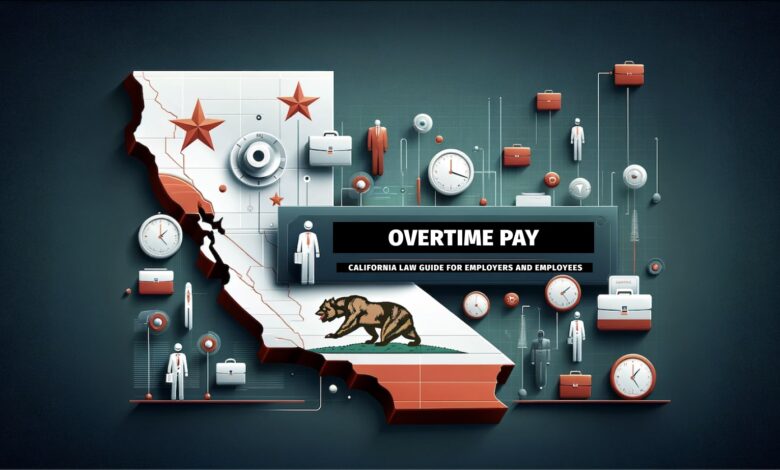California Overtime Pay for 12-Hour Shifts: A Real-World Guide

Why this topic hits home
If you’ve ever pushed through a 12-hour shift, you know that last stretch can feel like lifting weights with your eyes. California’s rules were built with days like that in mind, and they go further than the federal baseline. Nakase Law Firm Inc. often advises clients on California overtime law 12-hour shifts, helping folks figure out what fair pay should look like and how to keep schedules on the right side of the law.
Here’s the key for anyone working long days or setting schedules for a team: California counts daily hours, not just weekly totals. California Business Lawyer & Corporate Lawyer Inc. frequently explains that California overtime law goes beyond federal Fair Labor Standards Act rules, laying out pay bumps once a single day runs long and adding protections for seven straight days of work.
Daily rules that change the math
Think of California’s approach as a step-up ladder. Once you pass 8 hours in a day, the rate climbs to time-and-a-half. Push past 12, and the rate jumps again to double time. That structure isn’t random; it’s meant to keep marathon days from becoming the default.
What a 12-hour day actually pays
Let’s ground this with numbers. You clock a 12-hour shift at a warehouse:
• The first 8 hours land at your regular rate.
• Hours 9–12 run at time-and-a-half.
• A 13th hour, if it happens, lands at double time.
Stretch that across five long days and you’re at 60 hours for the week. You still get the daily bumps, and the weekly threshold of 40 hours adds another layer. In practice, that mix often puts real money back on the check. Ever hit hour eleven and think, does this effort even show up on payday? In California, it does.
Seven days in a row changes everything
Work every day in the same workweek and the seventh day flips the switch: the first 8 hours that day go at time-and-a-half, and anything beyond 8 turns into double time. Picture a hotel housekeeper who covered multiple call-outs. By Sunday, the pay rate is already higher before the first room is cleaned. That setup nudges employers to rotate coverage and gives tired teams a reason to rest.
Breaks you are owed along the way
Long days also trigger meal and rest break rights. Go past 5 hours, and you get a 30-minute meal break. Pass 10 hours, and a second meal break enters the picture. Plus, there are paid 10-minute rest breaks for about every 4 hours worked. If breaks are missed or cut short, employers usually owe a premium hour of pay for each missed meal or rest break. The lunch you skipped to help line cooks keep up with a dinner rush? That time has value.
Who gets overtime and who doesn’t
Some jobs sit in the exempt bucket: certain executive, administrative, and professional roles paid on a qualifying salary and meeting duty tests. The title on a business card doesn’t decide this; day-to-day tasks and pay level do the heavy lifting. That’s why a “team lead” who doesn’t supervise or make real decisions may still be non-exempt and owed overtime. If a label doesn’t match the reality of the job, pay problems follow.
Alternative workweek basics (and the limits)
California lets some workplaces adopt alternative schedules through a formal vote. A common setup is four 10-hour days. Folks like the longer days and extra day off, and the pay rules reflect that plan once it’s approved. Even so, hours beyond 12 in a day still trigger double time. So a 13-hour shift under an alternative schedule doesn’t skate by—those extra hours still climb the rate ladder.
If pay comes up short
When overtime or break premiums don’t land, options exist. Workers can ask payroll for a correction, file a claim with the state, or get legal help. On the employer side, skipping the rules tends to backfire. Back pay, interest, and fee awards stack up, and the problem rarely stays quiet. A quick correction costs less than a drawn-out dispute.
Small, real-world moments
Rosa, a caregiver, worked back-to-back 12s at an assisted living facility. Her checks felt light. She compared timesheets to pay stubs and spotted missing double time on nights that pushed past 12 hours. After raising it and getting nowhere, she filed a claim and recovered the difference, plus penalties.
Mark runs a growing distribution shop. In a pinch, he tried giving “comp time” for busy weeks. It sounded fair to him, but state rules didn’t line up with that plan. Once he switched to correct overtime and trained supervisors on scheduling, the grumbling stopped—and so did the surprises on payroll.
Tips for workers who clock long days
• Keep your own log—start, stop, lunches, and any skip on breaks.
• Look for the daily step-ups on your pay stub after long shifts.
• If hours or rates seem off, ask in writing for an explanation.
• If that stalls, the state claim process is designed for exactly this.
Quick thought: when you jot notes in real time, it’s much easier to sort out a mismatch months later.
Tips for employers who juggle schedules
• Use clear rules for punches, edits, and supervisor approvals.
• Audit pay stubs to confirm daily overtime and any premiums are flowing.
• Train frontline leads; most problems start with well-meaning but rushed decisions.
• If you plan an alternative schedule, run a proper election and document it.
And one more thing: review job duties against exemption tests at least once a year, since roles evolve.
Why a lawyer can help at the right moment
Overtime rules are simple in theory and picky in practice. Job duties shift, schedules change, and one exception can affect an entire pay period. A short consult can save a lot of back-and-forth. Employees get clarity on next steps. Employers get a clean checklist and fewer surprises. It’s not about picking a fight—it’s about finishing pay periods with confidence that the math is right.
The short version
California’s daily rules matter for anyone pulling 12s. Past 8 hours, time-and-a-half kicks in. Past 12, double time applies. Work seven days in a week, and the seventh day brings higher rates even before overtime hours stack up. Breaks are part of the picture, and missed ones usually bring premium pay. With a few habits—good records, clear schedules, timely fixes—both sides can keep paychecks accurate and stress lower. And if you’re asked to tack on that thirteenth hour, at least the rate respects what it takes to get through it.



